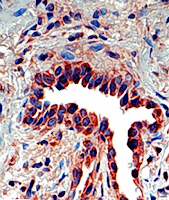Frequently found as an aid for pulmonary conditions and respiratory ailments, this study found propolis was better at protecting lungs from the deliberate scarring of bleomycin versus prednisolone and its known negative side effects.
Ultrastructural investigation of the protective effects of
propolis on bleomycin induced pulmonary fibrosis
Biotech Histochem. 2016 Mar 9:1-9
We investigated the antioxidant and anti-inflammatory
effects of propolis on bleomycin induced lung fibrosis and compared these
effects to prednisolone treatment.
Forty rats were divided into four groups of ten: group 1 was
treated with intratracheal infusion of 0.2 ml physiological saline followed by
daily treatment with 0.5 ml physiological saline for 20 days. In the remaining
groups (groups 2 - 4), 5 mg/kg bleomycin was given via the trachea. Rats in
group 2 were given 0.5 ml physiological saline. Rats in group 3 were treated
with 100 mg/kg propolis, and 10 mg/kg prednisolone was given to rats in group
4.
The treatments for all groups were continued for 20 days. On
postoperative day
21, blood and lung samples were taken for biochemistry,
histopathology and electron microscopy evaluation. We compared oxidative stress
parameters and found lower malondialdehyde and myeloperoxidase levels, and
higher total sulfhydryl levels and catalase activities for the bleomycin +
propolis group than for the bleomycin and bleomycin + prednisolone groups. The
highest mean fibrosis score was detected in the bleomycin group.
 |
| PLoS Medicine |
Although the mean fibrosis scores of the bleomycin +
propolis and bleomycin + prednisolone groups were not significantly different,
electron microscopy revealed that propolis diminished bleomycin induced lung
fibrosis more effectively than prednisolone. The effects of propolis might be
due to its potent antioxidant and anti-inflammatory properties.

